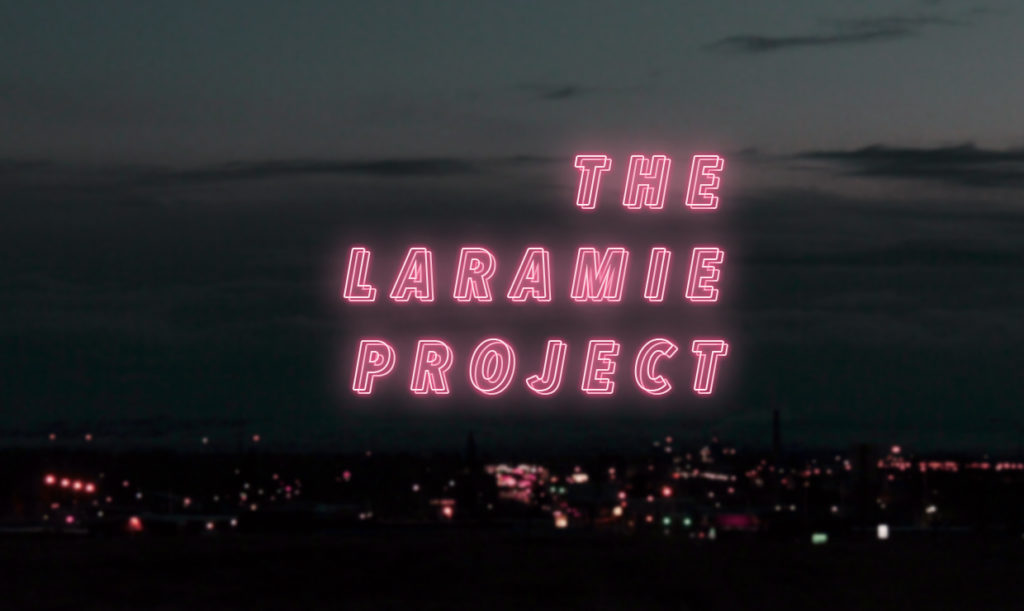 Presented by Harvard-Radcliffe Dramatic Club
Presented by Harvard-Radcliffe Dramatic Club
Written by Moisés Kaufman & the Members of the Tectonic Theater Project
Directed by Eli Schleicher ’18
April 11 – 13, 2018
Club Oberon
Cambridge, MA
HRDC on Facebook
Review by Diana Lu
(Cambridge, MA) The Laramie Project, by the Tectonic Theater Project, premiered in 2000. It is an amalgamation of over 200 interviews with the residents of Laramie, Wyoming, detailing the circumstances and consequences of the hate crime perpetrated against Matthew Shepard in 1998.
I particularly wanted to review this performance because I grew up in the Midwest, in the 90s. I am from China, but I grew up in Lincoln, Nebraska. One state over, another a college city superimposed on a prairie town. People always ask me what it was like there, and I always find it difficult to answer that question. The list of warm graciousness and kind gestures I experienced would be as innumerably long as the list of microaggressions and blatant bigotry. It was a clean, safe place, with a high standard of living. But it was also a place that explained tolerance—not acceptance—of otherness, and the morality, if not the letter, of the gospels permeated every experience. The monologues that The Laramie Project comprises effectively distilled the Midwest that I know well.
I was impressed by the young actors’ skill. Minimal costuming and props were used, primarily as totems for the audience to identify the over sixty characters that these eight players portrayed. The roles ranged from ten-year-old child to elderly rancher, and were almost entirely conveyed only with modulations in voice, movement, and expression. This performance was a masterclass in character creation. The casting was all gender, race, etc.-blind, and each character was represented with skill, maturity, and grace. In particular, the performance of Dennis Shepard’s monologue moved me to tears.
This production also took full advantage of the Oberon theater’s immersive stage, which augmented the effectiveness of the play immeasurably. One of the themes of The Laramie Project is the distance between self and other, good people and bad. The citizens of Laramie try to distance themselves first from the brutal murder and then the feelings of hate and bigotry that inspired it. It’s understandable, a knee-jerk reaction. In this production, the citizens of Laramie were monologizing all around and among us viewers. It’d be so easy for a Cambridge audience to look at the Matthew Shepard murder and say, “This happened in the Midwest. In a rural place. In a less educated place. A different place. They are different. They are like this. They are not us.” The immersive experience blurs the line between audience and player, victim and spectator and criminal, so that there is no such thing as they and us. We are all complicit in a bigoted system, all victims of in an unjust society, and to be spectator, especially willfully so, is criminal itself.
Acknowledging the evil in ourselves is only the first step. The last character to speak said, that as of 2000, no laws have been on the local, state, or national level. What concrete or lasting change has come of this? That’s the whole point, which is even more relevant now, in 2018. It’s that compassion and individual growth isn’t enough. Full justice requires political action leading to systemic change. Individuals or communities becoming more compassionate are nothing if it doesn’t translate to legislative equality, and concrete, lasting change.
